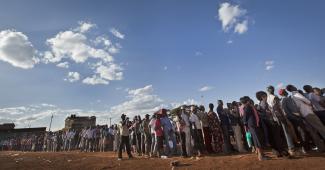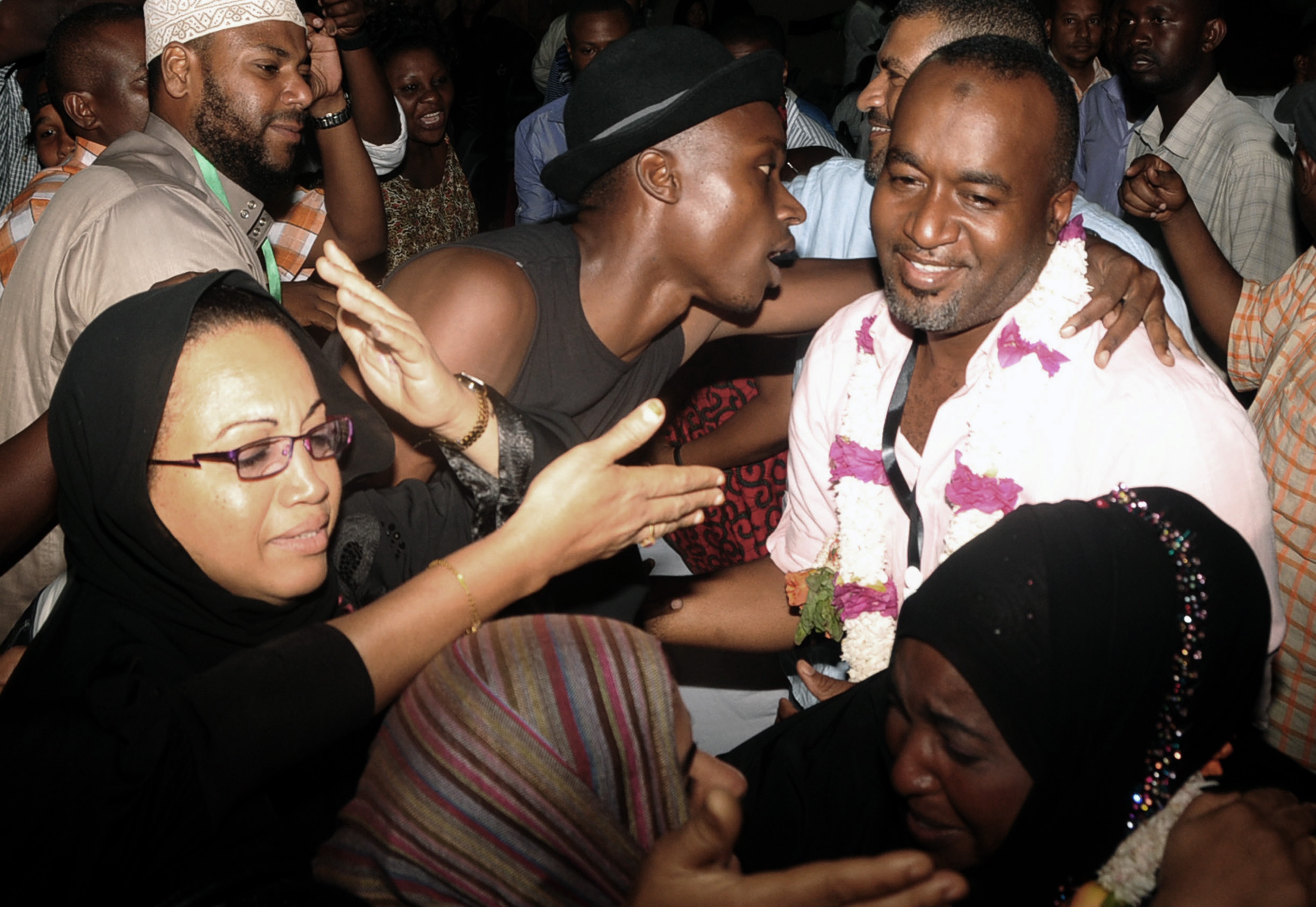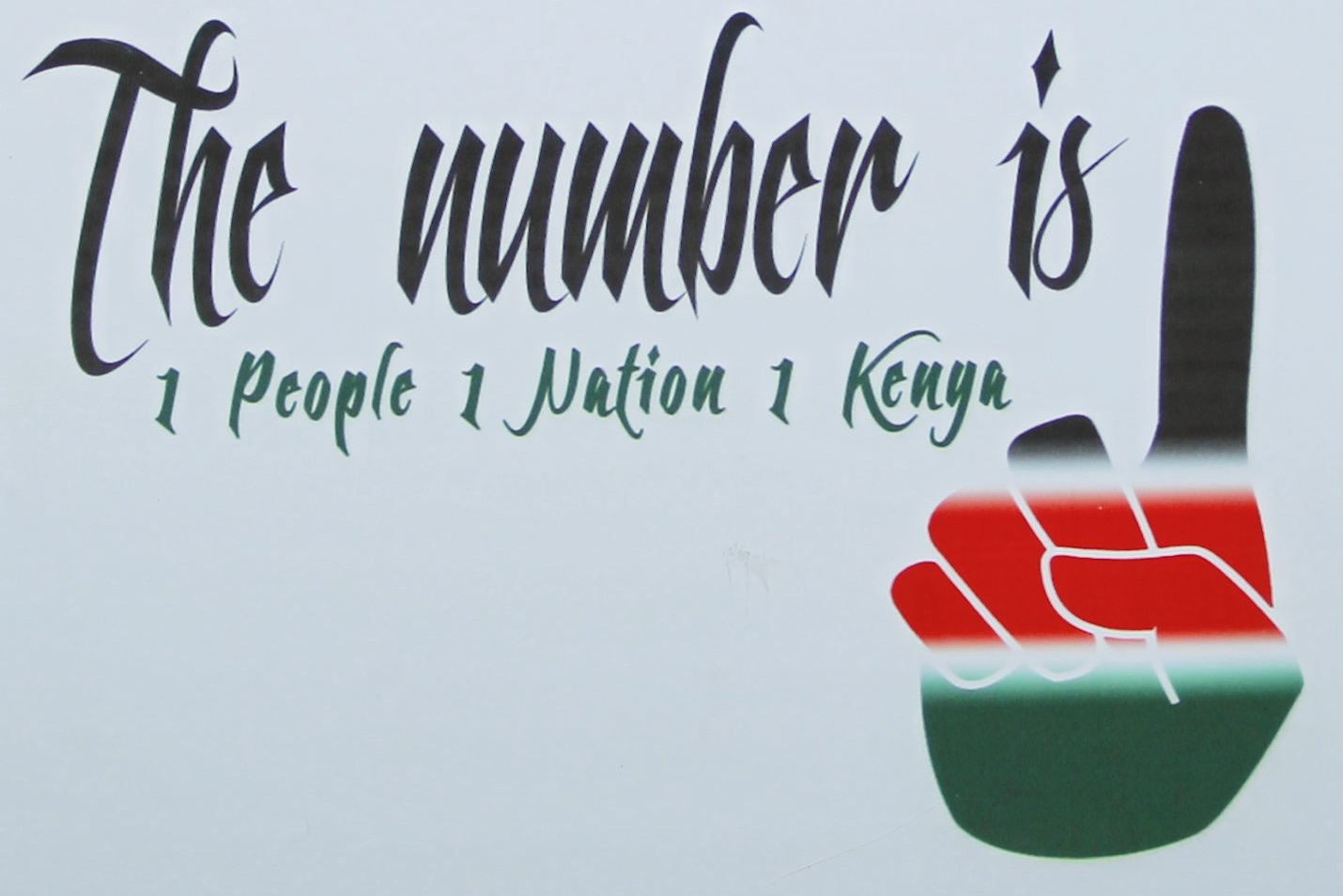Bitter Rivals
The people’s choice

For an entire week, life came to a standstill in many parts of Kenya. The voting was done. Yet the electronic counting system failed, and the manual recount kept people glued to TV sets, radios and the internet. Many were not only eager to learn who had won the presidential elections, but also worried that violence might erupt.
After the previous elections at the end of 2007, three months of ethnic clashes had left more than 1000 people dead. More than half a million people had lost their homes. Back then, the violence only stopped when former UN Secretary General Kofi Annan brokered a fragile peace deal. Mwai Kibaki stayed on as president and his opponent, Raila Odinga, became prime minister.
This time, the top contenders were Odinga and Uhuru Kenyatta, who served as Odinga’s deputy in the previous government. The two men have a lot in common. Both primarily appeal to their own ethnic groups (Kenyatta is Kikuyu, Odinga Luo), but differ little in terms of ideology. They are also both the sons of independence leaders. Jomo Kenyatta was the country’s first president, who soon fell out with his deputy, Jaramogi Odinga.
After the previous election, the riots started after Raila Odinga publicly cast doubt on the results according to which he had only come in second. Uhuru Kenyatta, on the other hand, is accused of crimes against humanity before the International Criminal Court (ICC) in The Hague because of alleged involvement in the violence.
This year, the country stayed peaceful. People were prepared to wait in queues for hours to take part. Voter turnout was 86 %, a ratio many western nations can only dream of. There were only very few incidents of violence. Voters’ enthusiasm was all the more valuable, as Kenyans elected leaders for several levels of national and local government. The new constitution of 2010 established 47 counties in order to decentralise decision making, bridge regional divides and make governance more accountable. The counties will now become fully operational under elected leaders.
The results of the presidential race remain controversial however. After a week of counting, Uhuru Kenyatta was declared Kenya’s new president-elect with 50.07 % of the vote. According to the law, a run-off election is required if no candidate wins at least 50 % of the vote. Odinga received 43 %, while the six other candidates shared the remaining votes. Odinga cried foul – not only because of the computer failures – and asked the Supreme Court to annul the election. When D+C/E+Z went to press, the judges had banned politicians from making further statements on the issue, but had not yet decided whether there would be more voting – something most people did not seem interested in. They were relieved to have made it through a difficult period unharmed.
“Kenyans are tired. People want to go back to work, they want to send their children back to school,” said Macharia Maina, a journalist. The comment of Aly Satchu Khan, one of Kenya’s leading businessmen was: “People were not prepared to go to the streets as they did in 2007/2008. They were not going to tolerate any mass action that would disturb the peace.”
The election, nonetheless, sent shock waves across the international arena. Many western governments are uncomfortable with the president-elect because of his case before the ICC. Before the elections, the governments of the USA and Britain had voiced concern over a possible Kenyatta victory. The hearings are set to start in July. Kenyatta has promised to cooperate with the court. Compounding the problem, William Ruto, who is set to become his vice president, must also stand trial before the ICC. To put it mildly, it would be awkward and most challening should they have to play a double role as national leaders and defendants before internationally-appointed judges.
It is worrying, moreover, that Kenya is still deeply divided along ethnic lines. The strongholds of Kenyatta and Ruto (a Kalenjin) around Kenya’s Central and Riftvalley provinces overwhelmingly voted for them. In Odinga’s home base around Kisumu, in Western Kenya, Kenyatta only received 23 % of the votes.
Sella Oneko is a journalism trainee at Deutsche Welle in Bonn.
sella.oneko@dw.de










